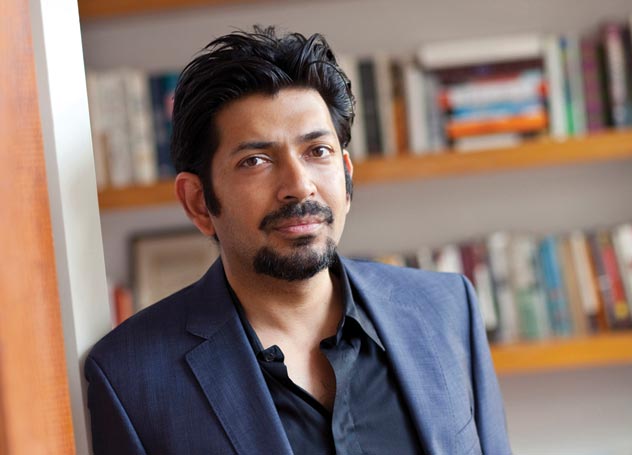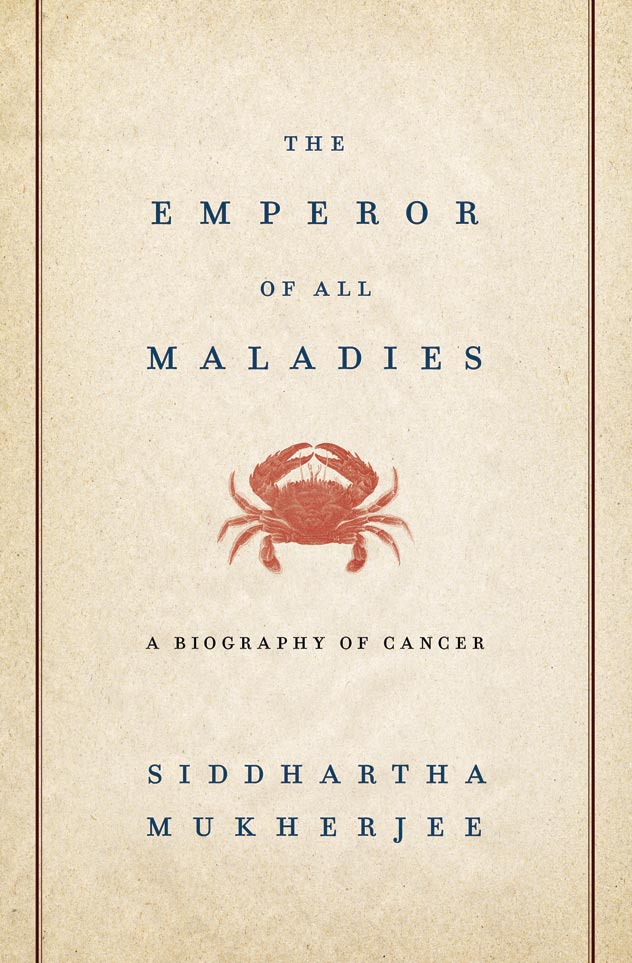BOOKS:
Cancer Chronicler: Author Oncologist Siddhartha Mukherjee
New York-based oncologist Siddhartha Mukherjee has written a chronicle of the dread disease cancer that is drawing rave reviews. A Siliconeer report.

(Above): New York-based oncologist Siddhartha Mukherjee is making waves with his new book “The Emperor of All Maladies: A Biography of Cancer.”
In 1986, in The New England Journal of Medicine, John Bailar and Elaine Smith published a cold assessment of comparative trends in cancer mortality over the years. This revealed what they called a “qualified failure.” Between 1962 and 1985, though duration of survival had improved in certain areas, the war on cancer had not only failed to show overall progress, but deaths from cancer had actually increased by 8.7%.
There are few diseases that haunt the modern human psyche like cancer.
Now New York-based India-born oncologist Siddhartha Mukherjee is making waves with his new book “The Emperor of All Maladies: A Biography of Cancer.”
“His intensely vivid and precise descriptions of biological processes accumulate into a character, fully developed and eerily familiar. The notion of ‘popular science’ doesn’t come close to describing this achievement. It is literature,” raves the London Observer.
Mukherjee grew up in New Delhi; his father was a manager for Mitsubishi, and his mother had been a schoolteacher. He went to a Roman Catholic school there, where he was required to learn by heart a staggering amount of poetry, but attended college at Stanford, which he chose mostly because some cousins lived in California. After studying immunology at Oxford on a Rhodes scholarship, he went to Harvard Medical School.
“Mukherjee, an oncologist and assistant professor of medicine at Columbia, . . . looks less like a scientist than like the leading man in a Bollywood musical. He belongs to that breed of physicians, rapidly multiplying these days, who also have literary DNA in their genome,” wrote The New York Times in a recent profile.
The book tells the stories of several cancer patients but its focus is the disease itself as it has been diagnosed, treated and thought about over the last 4,000 years.

(Above): Jacket of the recently published book “The Emperor of All Maladies: A Biography of Cancer,” by Siddhartha Mukherjee.
Though it has many historical antecedents, the epic medical quest to understand and treat cancer only really took shape as it emerged as a defining disease of modernity. Cancer only became a leading cause of death in the world when people began to live long enough to get it.
People in the past tended to die of other diseases – as they still do in poorer countries today. Cancer now ranks just below heart disease as a cause of death in the U.S., but in low-income countries with shorter life expectancies, it doesn’t even make the top 10. At the beginning of the 20th century, life expectancy at birth in America was 47.3 years. Now, the median age at diagnosis for breast cancer is 61; for prostate cancer, 67. As we extend our lives, Mukherjee writes, “we inevitably unleash malignant growth.”
Thus the scene is set for a monumental scientific, political and human struggle. Mukherjee assembles a teeming cast of characters: from ancients such as Atossa, the Persian queen who in 500 BC self-prescribed the first recorded mastectomy, to Mukherjee’s own patients. There are tales of grizzly surgical techniques and astonishing medical discoveries. But, as with any epic narrative, the central drama marches towards a war.
The full-blown campaign against cancer began with the meeting in the 1940s of an American socialite, Mary Lasker, in search of a great medical cause, and the driven cancer researcher, Sidney Farber, one of the creators of chemotherapy. Mukherjee describes it as the coming together of two travelers, “each carrying one half of a map.” The political alliance that Lasker and Farber eventually formed was with U.S. President Richard Nixon. The passing in 1971 of the National Cancer Act enshrined the idea of cancer as sovereign among diseases and bequeathed it the language of a world war.
In the early 1950s, Mukherjee writes, cancer was still considered so unmentionable that a woman seeking to place an advertisement in The New York Times for a support group was told that the paper could not print either the word “breast” or the word “cancer.” How about “diseases of the chest wall,” an editor helpfully suggested. Then, a few decades later, cancer was in the public limelight, thought to be virtually curable if we just waged sufficient “war” against it.
What we understand now, thanks to advances in cell biology, Mukherjee writes, is that cancer is normalcy of a sort. Cancer cells are “hyperactive, survival-endowed, scrappy, fecund, inventive copies of ourselves,” he told The New York Times, and adds: “We can rid ourselves of cancer, then, only as much as we can rid ourselves of the processes in our physiology that depend on growth — aging, regeneration, healing, reproduction.”
The Observer writes admiringly: “The yoking of scientific expertise to narrative talent is rare enough, but the literary echoes of The Emperor of All Maladies suggest a desire to go further even than fine, accessible explanation. ‘Normal cells are identically normal; malignant cells become unhappily malignant in unique ways.’
“It takes some nerve to echo the first line of Anna Karenina and infer that the story of a disease is capable of bearing a Tolstoyan treatment. But that is, breathtakingly, what Mukherjee pulls off. He calls this great and beautiful book a biography, rather than a history, because he wants his reader to understand his subject not just as a disease, a scientific problem or a social condition, but as a character – an antagonist with a story to tell through its eerie relationships to the wider biological and animal world that is also, inexorably, our story.”
|